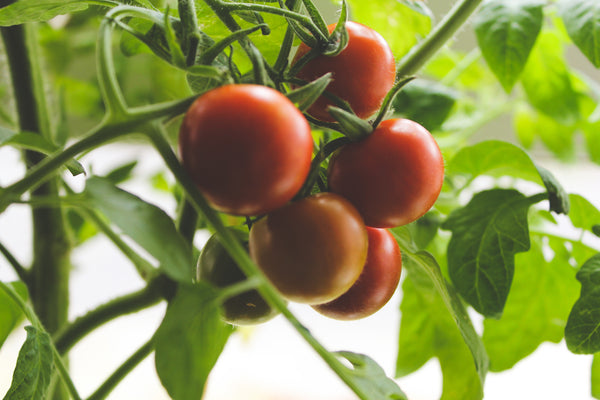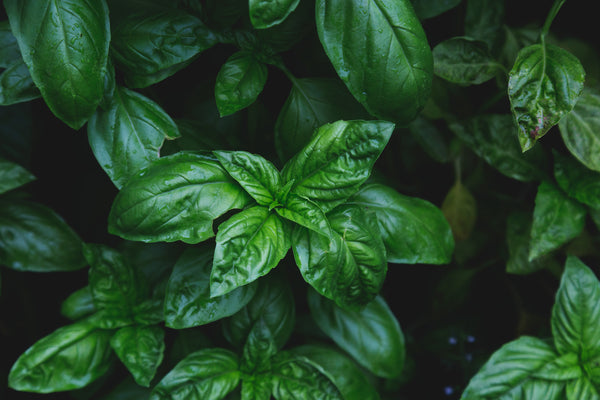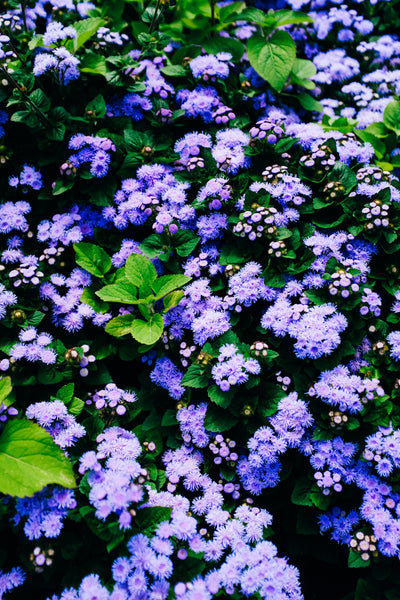It is thought that there are over three thousand heirloom tomatoes in cultivation, from the very well known Black Krim to the rather more obscure Sibirskiy Skorospely (Early Siberian). With modern bred open pollinated and hybrid varieties, the number is more like fifteen thousand types. So, how to choose a tomato can seem daunting for the beginner gardener.
It’s a subject that experienced tomato growers can grow highly passionate over. Everyone has their favourite types, and all for different reasons. Just about every tomato has its own unique charms, but where does one start?
There are several ways to narrow down the selection process. Consider the following points.
1. Determinate vs. indeterminate. These words describe the very basic growth forms of tomato plants. They are more or less interchangeable with “bush” vs. “vine.” Determinate, bush plants are generally more compact, with shorter stems, and more densely growing leaves. These plants tend to have a concentrated set, which means that their fruits all ripen ready for picking within a short period of three to four weeks in summer. Determinate tomatoes are assisted by the support of a wire tomato cage to keep their branches off the ground.
Indeterminate vine tomatoes perform as you might expect. The stem grows long and tall, and it seeks to branch off and form several growing stems – which are host to more leaves, which means more energy for the plant. These plants just keep getting bigger, and they form flowers and fruits as they go. If they are kept picked, they continue to put on more growth, so the harvest window is much longer. The plants tend to go until it is too cold or too wet to continue healthy growth. Indeterminate tomatoes require more substantial support, like a trellis or string.
If space is restricted to one or two plants on the balcony, determinate tomatoes might be a better idea. Or, if the growing space is a giant greenhouse, with no real space concerns, indeterminate varieties could produce a better haul. There are some crossovers between bush and vine, and you might see a plant described as “bushy indeterminate” or “semi-determinate vines.” That is to say, it’s not black and white. There are even dwarf varieties intended for container growing – like Red Robin and Tumbler.
2. Early vs. main season. This consideration has a big impact on final harvests. Many of the varieties we carry were bred to mature early, which still means mid-summer in most cases. But most of the big beefsteak varieties, and many heirloom types, need more time to mature. Their fruits might not be ripe for picking until mid-August. Here on the coast, the later it gets in the season, the higher the chances that plant diseases like late blight should be a concern. One of the strategies to avoid late blight is to work only with early season tomatoes. Maybe this is not such a serious consideration east of the Rockies.
3. Beefsteak vs. cherry. It can almost be said that every tomato plant produces the same volume of tomatoes. Cherry tomatoes like Sweet Million and Sungold tend to produce mountains of their small, sweet fruits. Meanwhile, the really massive ones like Arbason may produce fewer fruits and larger fruits, many with more complex and sophisticated flavours.
4. Roma tomatoes are generally meant for cooking. Some of them are very nice cut raw into salads, but this group has its roots in Italy. We have had growers that cater to largely Italian client base, and they struggle to keep up with the demand for San Marzano Lampadina. Another grower might be surprised by its meatiness.
5. There are no bad ones. Really, each one has its own charms, and home grown tomatoes are famously worth all the fuss. Remember that this is the start of a life long journey. You can try new ones each year, or find a favourite and stick with it for life. We are spoiled for choice when it comes to tomatoes, so enjoy it.



